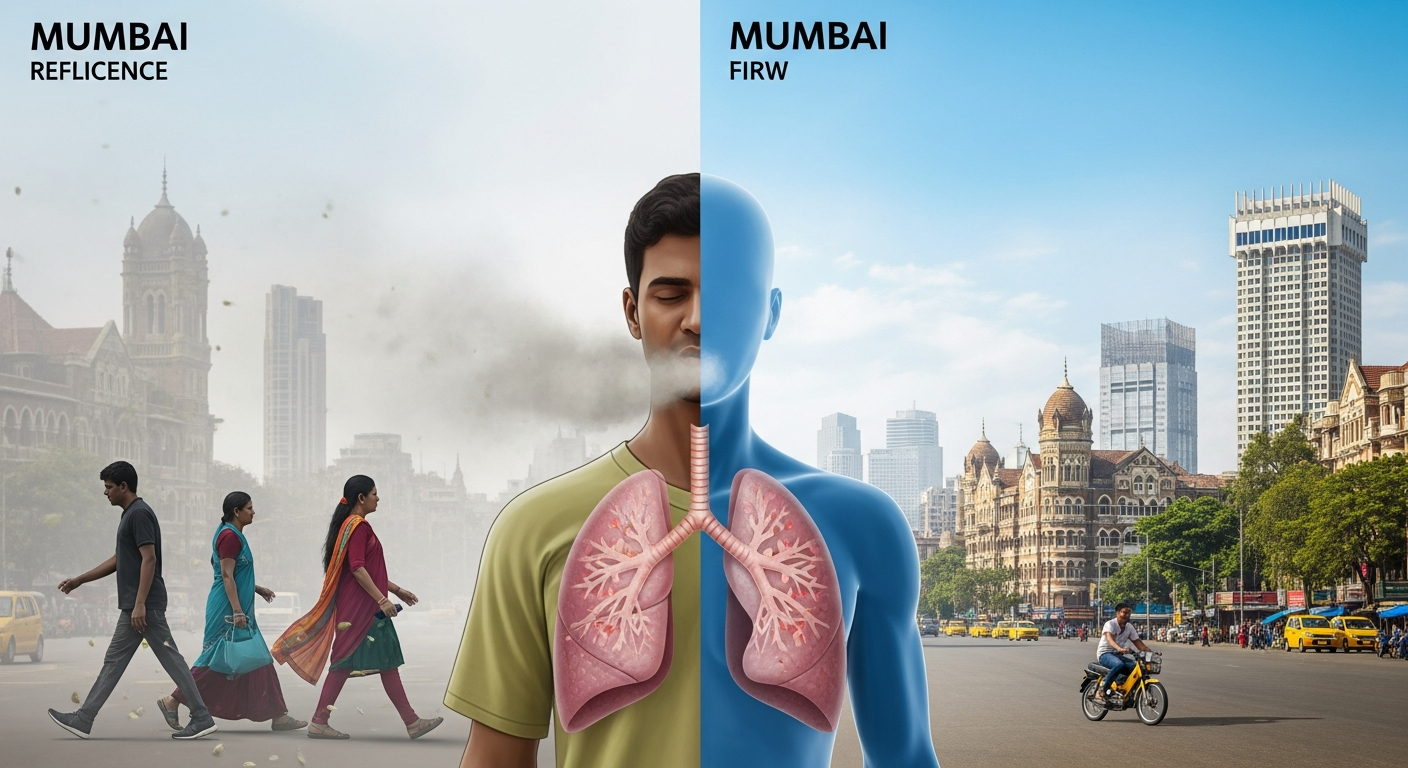
I recently came across actor Vir Das's rather poignant quip about Mumbai's deteriorating air quality: "My lungs have adapted, it's fine" Vir Das jokes about Mumbai's AQI: 'Not gonna cough at this point, my lungs have adapted'. While spoken with a comedic touch, it struck a deep chord with me, highlighting a dangerous truth about human resilience and, perhaps, our complacency.
Vir Das's statement, made during a stand-up performance, captures a common sentiment. We, as humans, are remarkably adept at adapting to adverse conditions. We adjust to traffic, noise, and, yes, even poor air. But is 'adaptation' truly a solution when it comes to something as fundamental as the air we breathe? Or is it a surrender to a slow, insidious decline in our collective health and quality of life?
This isn't a new concern for me. For years, I have been writing extensively on environmental issues, and pollution has consistently been a topic I've explored in depth. In fact, if you were to sift through my archives, you'd find a significant number of blogs dedicated to 'Pollution' alone, as noted in my earlier reflection on simplifying blog searches Subject / Topic wise Number of Blogs and Search Blogs by Topic Keywords.
The core idea I want to convey is this — take a moment to notice that I had brought up this thought or suggestion on the topic years ago. I had already predicted this outcome or challenge, and I had even proposed a solution at the time. Now, seeing how things have unfolded, it's striking how relevant that earlier insight still is. Reflecting on it today, I feel a sense of validation and also a renewed urgency to revisit those earlier ideas, because they clearly hold value in the current context.
We cannot simply 'adapt' our way out of a crisis that demands systemic change. While our bodies might find a way to cope in the short term, the long-term health implications are undeniable. The humor in Vir Das's observation serves as a mirror, reflecting our collective predicament and the passive acceptance that often accompanies environmental degradation. It reminds us that while individual resilience is commendable, it should not replace the urgent need for robust policy, technological innovation, and collective action to safeguard our environment.
The conversation shouldn't be about how well our lungs have adapted, but how quickly we can restore the air to a quality that doesn't demand such adaptation in the first place.
Regards,
Hemen Parekh
Of course, if you wish, you can debate this topic with my Virtual Avatar at : hemenparekh.ai






No comments:
Post a Comment